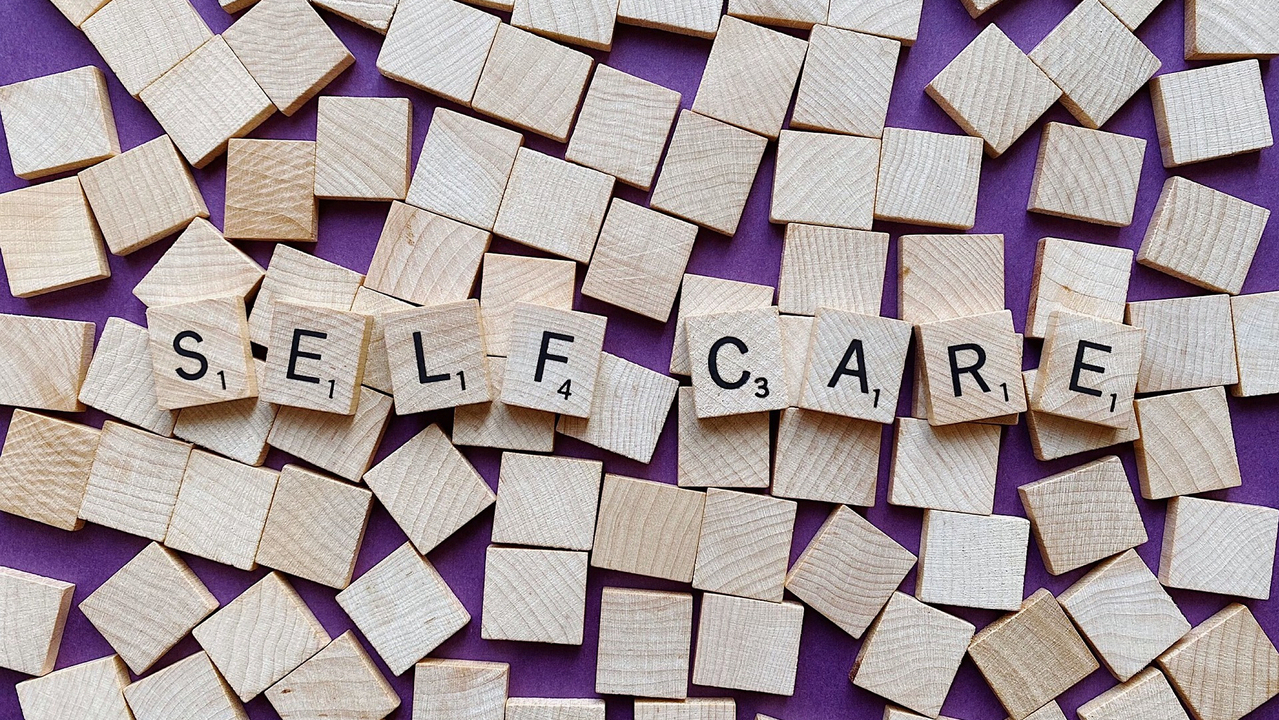Are You Prioritizing Self-Care?
- Written by: Lynne Lafave

Professions like education, with heavy human interactions, are prone to experiencing stress and burnout.1 Each day, children with a wide range of needs demand our full attention and emotional energy, which can be draining. Additionally, over the past year and a half, nearly everyone has encountered new challenges due to the pandemic.
Health research indicates that under stress, we increase our consumption of unhealthy snacks, caffeine, and fast food coupled with less physical activity and increased sedentary time.2,3 These choices appear to be motivated by immediate gratification, or desperation, in our pursuit to manage stress.
So - are our instincts for comfort food, skipping the sweat, and late nights effective in soothing our stressors? Sadly, it appears that these instincts are not leading us in the right direction. Diets high in processed foods, fat, and sugar as well as physical inactivity combined with sedentary behaviour can contribute to psychological distress.3,4 Additionally, poor sleep quality is associated with an increase in work-related stress.5 These all appear to contribute to a “vicious cycle” whereby our stress leads to poor food, activity, and sleep choice which then contributes to more stress.
What is an early childhood educator to do?
Focus on the basics: eat well, move well, sleep well.
Practical Tips
Diets rich in vegetables, berries, whole grains, and nuts are implicated in the reduction of depressive symptoms and improved thinking.6,7 Engaging in physical activity is related to improved mood and a reduction in perceived stress often leading to sustained physical activity over multiple days and continued positive feelings.3 Quality sleep allows the brain to reset, enhancing thinking focus the following day.8
Eat well
- Stay well hydrated. Drinking plenty of water to prevent dehydration helps to keep you feeling alert and not drowsy.
- Avoid sugary foods and drinks. You may feel an initial quick boost of energy but it often will lead you to feel low energy as soon as one hour later.
- Pack your own healthy snacks. Make the healthy choice the easy choice. An apple, a small piece of cheese, or a small handful of nuts will leave you feeling better, longer.
Move well
- Move it Move it. Being active will enhance your sense of well-being and positive affect.
- Time it to get up and go. Find some time to go for a walk or break it up into three 10 min brisk heart-pumping walks per day. If those walks are outside you can get some nature time as well!
Sleep well
- Practice good sleep hygiene. Use your bed for sleep and not for eating, watching television, or grading. Train your brain that bedtime is sleep time.
- Watch the caffeine. Drinking coffee, tea, and other caffeinated beverages can help you stay alert, but it impacts your sleep. Caffeine can stay in your system for 8 hours. Plan your bedtime and count backward for the last coffee of the day.
References
-
Cherniss C. New York, NY: Psychology Press; 1995. Beyond Burnout: Helping Teachers, Nurses, Therapists, and Lawyers Recover from Stress and Disillusionment.
-
Mouchacca, J., Abbott, G. R., & Ball, K. (2013). Associations between psychological stress, eating, physical activity, sedentary behaviours and body weight among women: a longitudinal study. BMC public health, 13(1), 828.
-
Schultchen, D., Reichenberger, J., Mittl, T., Weh, T. R., Smyth, J. M., Blechert, J., & Pollatos, O. (2019). Bidirectional relationship of stress and affect with physical activity and healthy eating. British journal of health psychology, 24(2), 315-333.
-
Molendijk, M., Molero, P., Ortuño Sánchez-Pedreño, F., Van Der Does, W., & Angel Martínez-González, M. (2018). Diet quality and depression risk: A systematic review and dose-response meta-analysis of prospective studies. Journal of Affective Disorders, 226, 346–354.https://doi.org/10.1016/j.jad.2017.09.022
-
Krause, A. J., Simon, E. B., Mander, B. A., Greer, S. M., Saletin, J. M., Goldstein-Piekarski, A. N., & Walker, M. P. (2017). The sleep-deprived human brain. Nature Reviews Neuroscience, 18(7), 404.
-
Francis, H. M., Stevenson, R. J., Chambers, J. R., Gupta, D., Newey, B., & Lim, C. K. (2019). A brief diet intervention can reduce symptoms of depression in young adults–A randomised controlled trial. PloS one, 14(10).
-
Morris, M., Tangney, C., Wang, Y., Sacks, F., Bennett, D., & Aggarwal, N. (2015). MIND diet associated with reduced incidence of Alzheimer’s disease. 11(9), 1007–1014. https://doi.org/10.1016/j.jalz.2014.11.009
-
Kühnel, J., Zacher, H., De Bloom, J., & Bledow, R. (2017). Take a break! Benefits of sleep and short breaks for daily work engagement. European Journal of Work and Organizational Psychology, 26(4), 481-491.
Author Bio
Lynne Lafave is an associate professor in the Department of Health and Physical Education at Mount Royal University in Calgary Alberta. She holds a doctorate in nutritional sciences and her research focuses on nutrition, physical activity, and well-being initiatives in early childhood education and care. As the principal investigator on the CHEERS project, she works jointly with early childhood educators and CHEERS project coordinators to support early child health and well-being initiatives in the early childhood education and care setting.